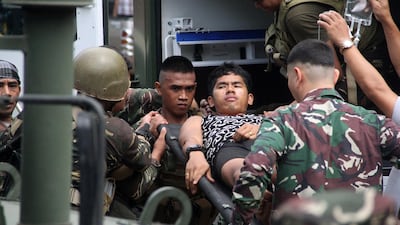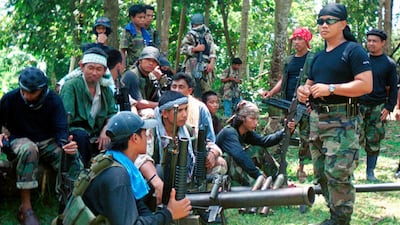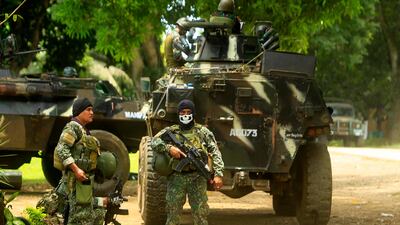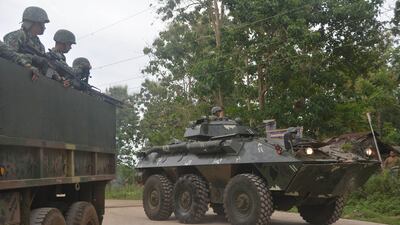Philippine troops killed an Abu Sayyaf rebel commander who was blamed for years of ransom kidnappings and on Sunday rescued the last of his four Indonesian captives, the military said.
Marines wounded Amajan Sahidjuan in a gun battle on Saturday night and he later died from blood loss on Kalupag Island in southern Tawi Tawi province.
Two other militants managed to flee and dragged along the last of four Indonesian hostages, but troops rescued him on Sunday, regional military commander Lt Gen Corleto Vinluan Jr said.
On Thursday night, three Indonesian men were rescued by police who also captured one of their Abu Sayyaf captors along the shores of South Ubian town in Tawi Tawi.
The military said the Abu Sayyaf militants led by Sahidjuan were fleeing assaults in nearby Sulu province when their speedboat was lashed by huge waves and overturned off Tawi Tawi.
A military officer said the militants were attempting to cross the sea border to Tambisan Island in neighbouring Malaysia's Sabah state to release the captives in exchange for a ransom of at least five million pesos ($104,000), but the Philippine military learned of the plan and staged covert assaults.
The officer, who said he has been heavily involved in anti-Abu Sayyaf operations, spoke on condition of anonymity.
Lt Gen Vinluan said the rescue of the Indonesian men, the last known hostages held by the Abu Sayyaf, would allow government forces to finish off the ransom-seeking rebels.
"It will just be relentless in a massive and focused military operation because, now, we would not worry about kidnap victims getting hit," Lt Gen Vinluan said.
He said there were about 80 Abu Sayyaf gunmen left in Sulu and outlying island provinces. One of their remaining elderly leaders, Radulan Sahiron, has fallen ill and was wounded in a recent offensive in Sulu, he said.
Sahidjuan, who uses the nom de guerre Apuh Mike, has been blamed for ransom kidnappings since the early 1990s.
He was reportedly among Abu Sayyaf militants who attacked the southern and largely Christian town of Ipil in 1995, where they killed more than 50 people after robbing banks and stores and burnt the town centre.
Abu Sayyaf is a small but violent group that has been separately blacklisted by the Philippines and the US as a terrorist organisation for bombings, ransom kidnappings and beheadings. Some of its factions have aligned themselves with ISIS.
The militants have been considerably weakened by years of military offensives, surrenders and battle setbacks but remain a national security threat.
They set off a security alarm in the region in recent years after they started venturing away from their jungle encampments in Sulu, an impoverished Muslim province in the largely Roman Catholic nation, and staged kidnappings in Malaysian coastal towns and targeted crews of cargo ships.







